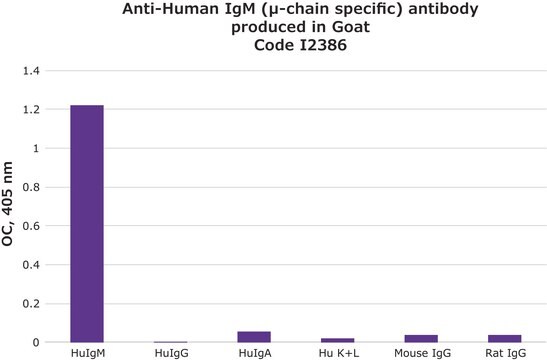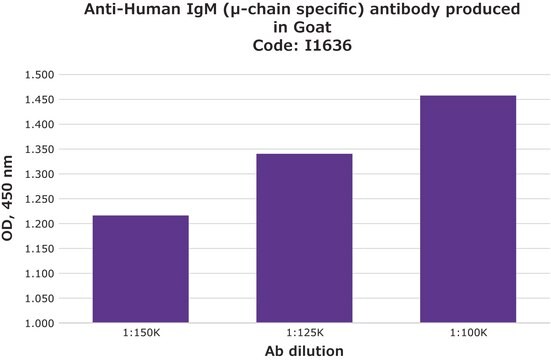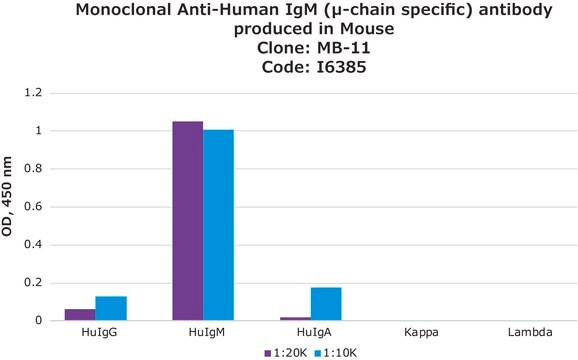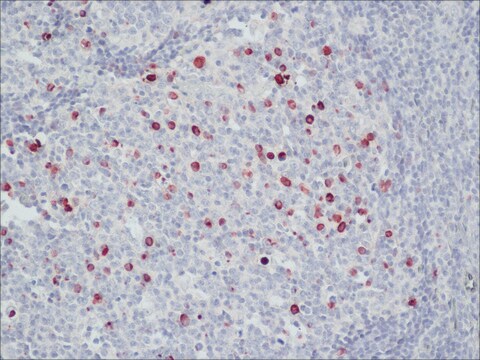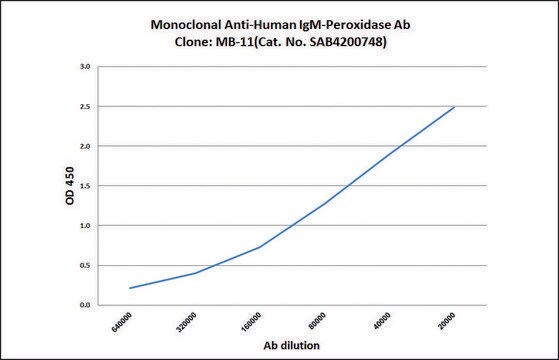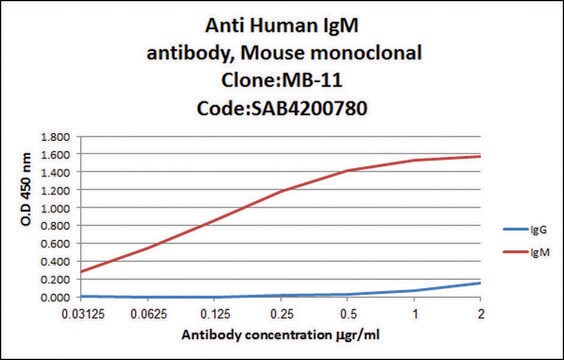I0759
Anti-Human IgM (μ-chain specific) antibody produced in goat
affinity isolated antibody, lyophilized powder
Synonym(s):
Anti Human IgM Antibody - Anti-Human IgM (μ-chain specific) antibody produced in goat, Anti Human Igm, Anti Human Igm Antibody, Anti-Human Igm
About This Item
Recommended Products
biological source
goat
Quality Level
conjugate
unconjugated
antibody form
affinity isolated antibody
antibody product type
secondary antibodies
clone
polyclonal
form
lyophilized powder
technique(s)
Ouchterlony double diffusion: suitable
quantitative precipitin assay: suitable
storage temp.
2-8°C
target post-translational modification
unmodified
Looking for similar products? Visit Product Comparison Guide
General description
Immunoglobulin M (IgM) antibodies appear early in the course of infections. IgM antibodies are responsible for agglutination of red blood cells in mis-matched blood transfusions. The level of IgM may vary with the status of disease or infection.
Anti-Human IgM (μ-chain specific) antibody is specific for human IgM with mu chain. The antibody preparation is specific for human IgM when tested against purified human IgA, IgG, IgM, Bence Jones κ and Bence Jones λ myeloma proteins.
Specificity
Immunogen
Application
Physical form
Reconstitution
Disclaimer
Not finding the right product?
Try our Product Selector Tool.
Storage Class Code
10 - Combustible liquids
WGK
WGK 1
Flash Point(F)
Not applicable
Flash Point(C)
Not applicable
Personal Protective Equipment
Certificates of Analysis (COA)
Search for Certificates of Analysis (COA) by entering the products Lot/Batch Number. Lot and Batch Numbers can be found on a product’s label following the words ‘Lot’ or ‘Batch’.
Already Own This Product?
Find documentation for the products that you have recently purchased in the Document Library.
Our team of scientists has experience in all areas of research including Life Science, Material Science, Chemical Synthesis, Chromatography, Analytical and many others.
Contact Technical Service